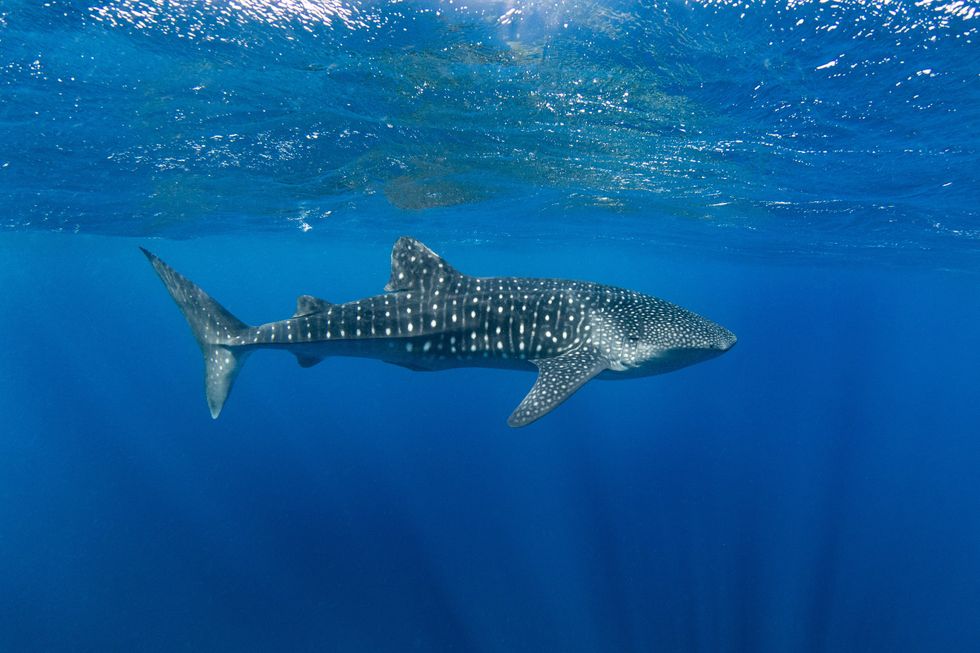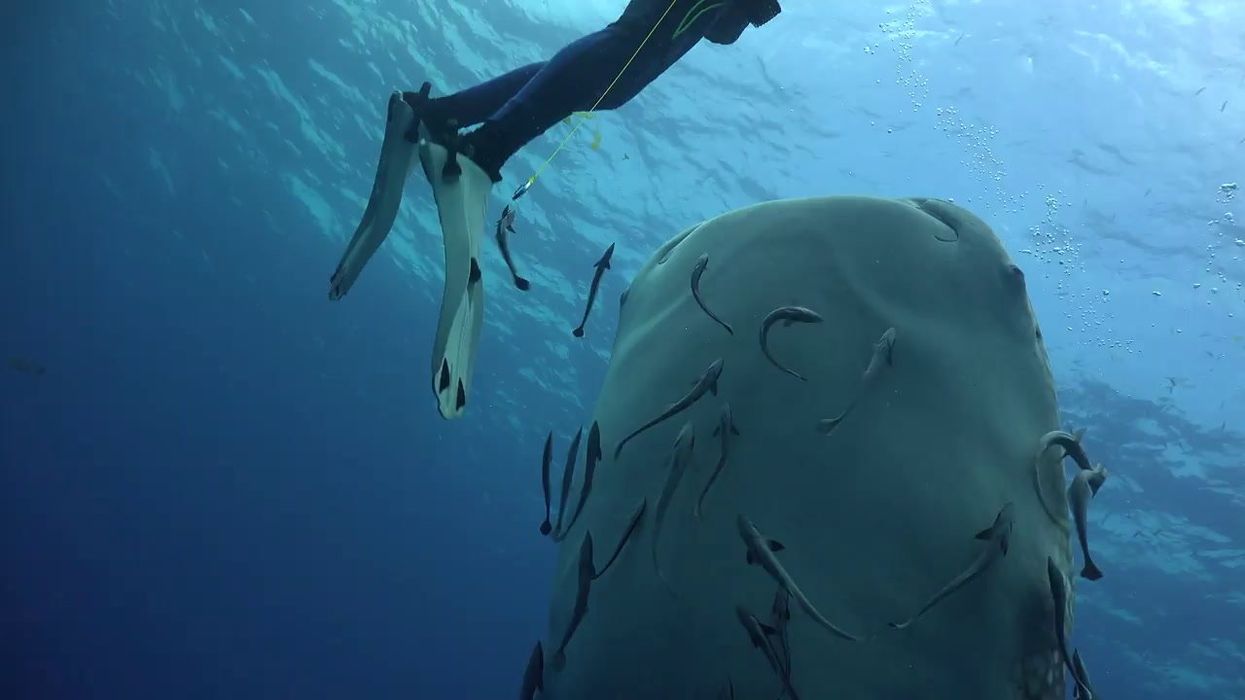Jake Brigstock
Sep 06, 2024
Diver Has a Close Encounter With a Whale Shark
ViralHog / VideoElephant
As if the prospect of sharks couldn't be any more terrifying already, some of them have what are essentially teeth on their eyes.
Thankfully, this feature is only seen on whale sharks, the world's largest omnivores, who are usually gentle giants that scoop up plankton with their big mouths.
Phew.
A study published in PLOS One found whale sharks have 'dermal denticles' which are modified, tiny teeth that cover their eyeballs. These likely serve as protection as their eyes poke out on either side of their heads with no eyelids, making them vulnerable.
The study said: "Considering these tissues are exposed and that whale sharks lack eyelids; the eye surface is less protected from mechanical damage than other regions of the body that are covered with mineralised dermal denticles.
"Thus, the covering of the eye surface with denticles in the whale shark is probably useful in reducing the risk of mechanical damage to the eye surface.
"As far as we know, eye denticles have not been found in other elasmobranchs, including species closely related to the whale shark, such as the tawny nurse shark (Nebrius ferrugineus) and the zebra shark (Stegostoma fasciatum).
"It seems likely, therefore, that eye denticles are a characteristic unique to the whale shark."

Whale sharks can have more than 3,000 'dermal denitcles' on their eyeballs which are clustered around the iris.
Newsweek reports scientists have also found whale sharks can partially retract their eyeballs into their skulls, suggesting the whale shark's eyes might be more important to survival than previously thought.
Although only whale sharks have 'dermal denticles' on their eyes, this species of shark and a number of others have them all over their bodies which act like scales.
They can also help sharks swim faster as the tiny pieces decrease drag (a bit like a Formula One car with pointy aerodynamic parts seen on areas such as the front wing) and they help provide protection against other sharks that may attack them, according to Phys.org.
How to join the indy100's free WhatsApp channel
Sign up to our free indy100 weekly newsletter
Have your say in our news democracy. Click the upvote icon at the top of the page to help raise this article through the indy100 rankings.
Top 100
The Conversation (0)














